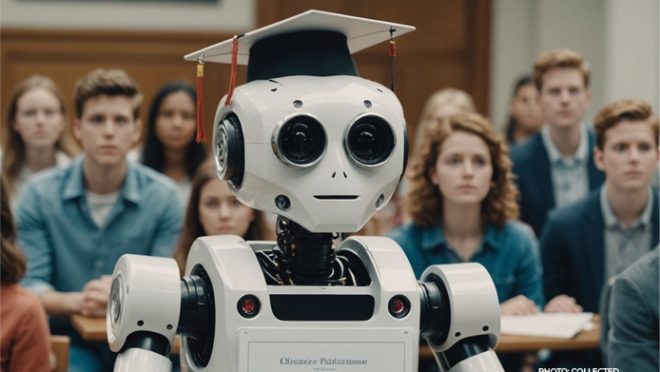AI outperforms students in university exams: Study
AI outperforms students in university exams: Study

A study conducted by researchers at the University of Reading has revealed findings where AI assisted “fake students” received better grades than real students.
The study, published in the journal Plos One, involved creating 33 fake students and using ChatGPT to generate exam answers for undergraduate psychology modules. The AI-generated submissions consistently outperformed those of real students, without detection by exam markers.
According to the study, the AI-generated exam results were, on average, half a grade boundary higher than those of human students. The concerning finding was that 94% of AI essays went unnoticed by exam markers, appearing nearly indistinguishable from human-written work.
This detection rate of only 6% suggests that current methods of identifying AI-generated content are inadequate and likely overestimated.
Associate Professor Peter Scarfe and Professor Etienne Roesch, who led the research, emphasised the gravity of their findings as a “wake-up call” for educators globally.
“Our research underscores the urgent need to understand and address how AI will impact the integrity of educational assessments,” stated Dr Scarfe. He noted that while many institutions have embraced alternative assessment methods for inclusivity, the rise of AI poses significant challenges to maintaining academic integrity.
The study involved submissions across multiple academic years, revealing that AI consistently excelled in first- and second-year modules but faltered in third-year exams, where more abstract reasoning is typically required.
This disparity highlights a current limitation of AI technology in handling complex, nuanced tasks that demand higher-order thinking skills.
Dr Scarfe further acknowledged that while handwritten exams may not return en masse, the education sector must evolve thoughtfully to mitigate the risks posed by AI.
The consequences go beyond academic dishonesty to broader questions about how technology shapes educational practices and assessment standards.Concerns about AI’s role in education have been mounting, with universities like Glasgow recently reintroducing in-person exams in response to these challenges. According to the Guardian, earlier this year, research indicated that while most undergraduates utilised artificial-intelligence programmes to help with their essays, only 5% admitted to putting unedited AI-generated content into their assessments.


